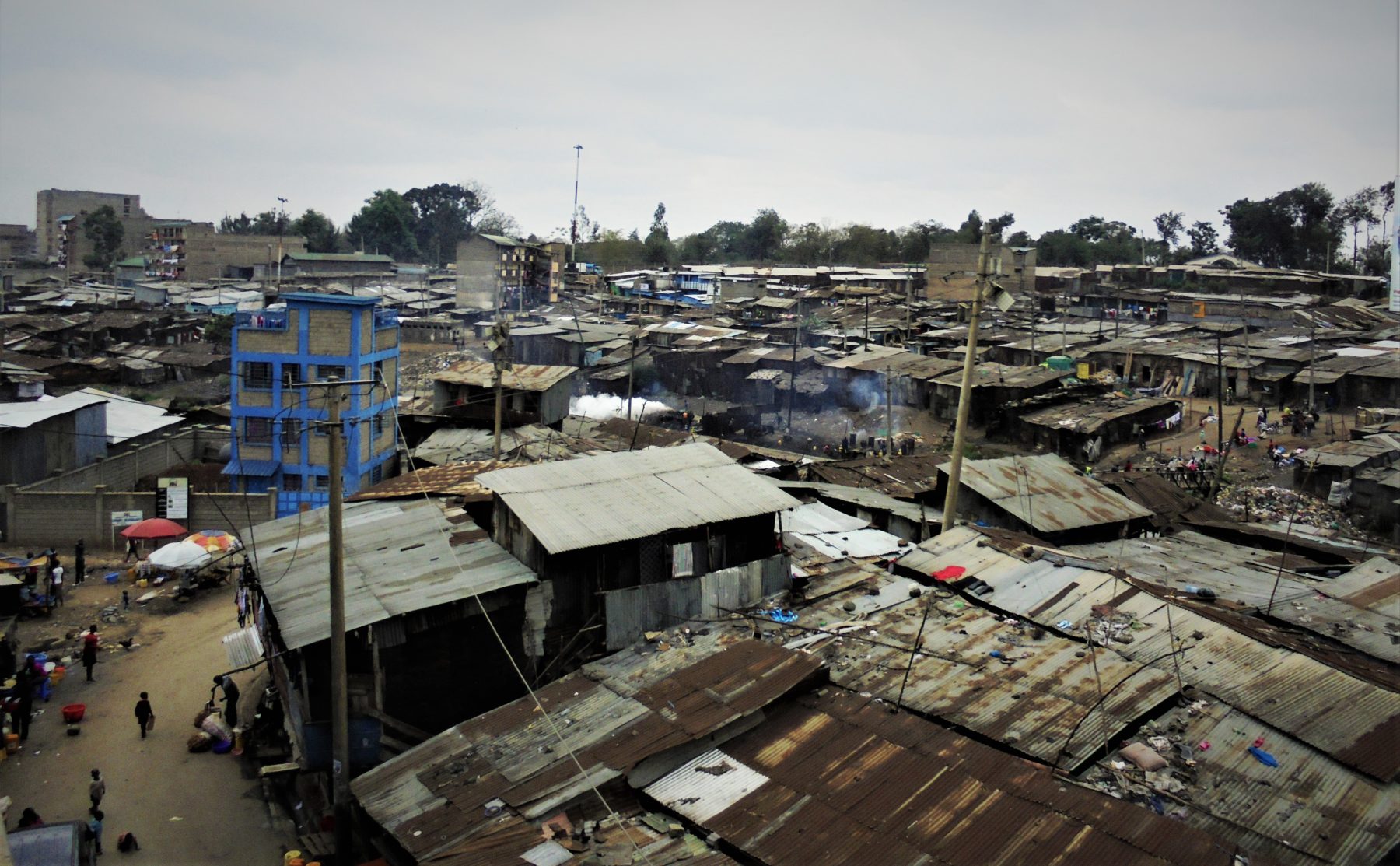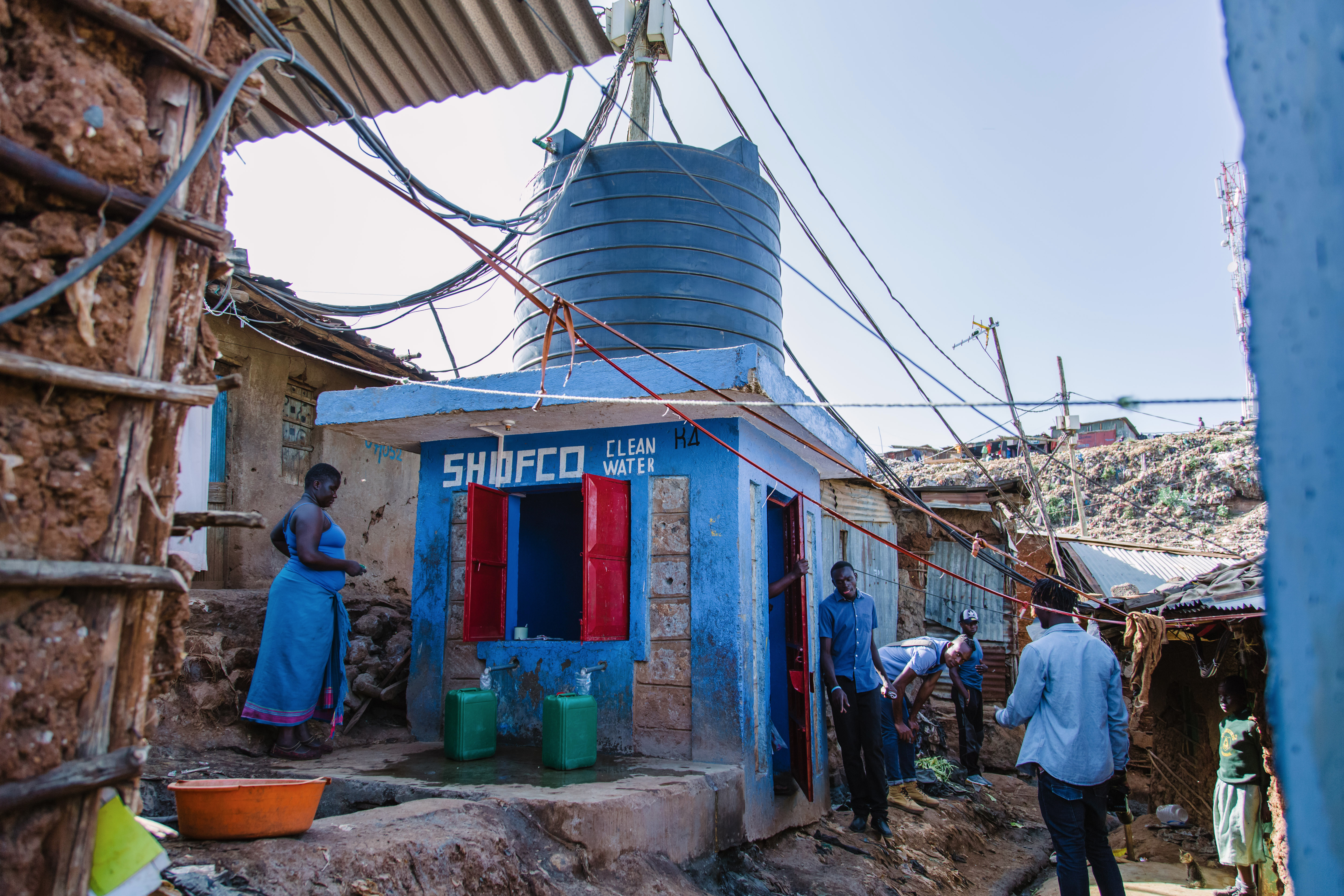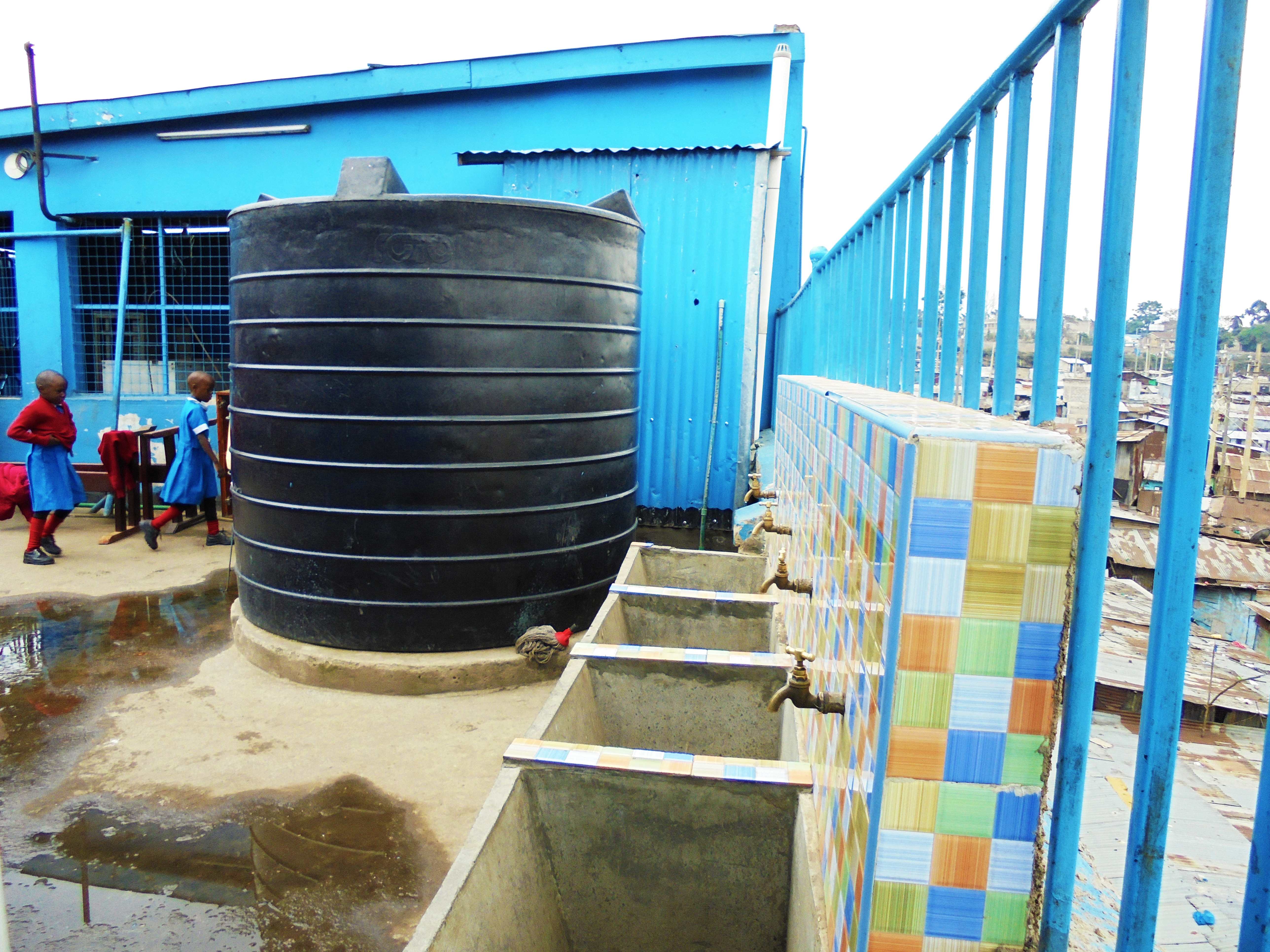
All human beings need clean water to survive. Yet, for the millions of people living in slums, clean water is not readily available. In households without running water, a shared community tap is their only source of water. Due to pipe erosion, pollution and unsanitary conditions, most water that is available is contaminated and brings with it a high risk of disease and illness.
For residents of the slums in Nairobi where SHOFCO is working, the main sources of water for slum communities are either the Nairobi City Water and Sewerage Company (NCWSC) or private vendors. High population density has limited NCWSC’s capacity to deliver. Due to the informal nature of the slums, it is difficult for outside service providers to accurately gauge community needs hence an approximately 12% piped water coverage. Private vendors have taken advantage of water shortage and are supplying often contaminated water to residents at a price ranging from Ksh20 to KSh30 ($0.20 cents to $0.30 cents) for a 20 liters’ jerry can.
Recognizing the transformative power of clean water, in 2012 , SHOFCO launched its water services with a 100,000-liter water tower in Kibera, built by Newman’s Own Foundation. In 2016, SHOFCO partnered with the Pentair Foundation to design and bring an innovative aerial water piping system to Kibera. In conjunction with SHOFCO, Pentair engineers designed, built and installed a modern water filtration system to treat water on site, doubling the volume of water that the system delivered to the Kibera community. The Safaricom Foundation later supported expansion of the project.
This is the only such system in Kenya. SHOFCO’s system is gravity-driven and uses overhead pipes supported by concrete and metal poles to supply water to 24 water kiosks across Kibera. Not only do residents benefit from treated water, this has proved disruptive to the monopoly enjoyed by local vendors and reduced the price of a 20-litre water jerrycan by 60% from Sh5 to Sh2 ($0.05 cents to $0.02 cents).

A woman collects water from one of SHOFCO’s 24 clean water kiosks in Kibera.
In 2018 alone, our clean water system provided water to more than 19,000 people and their households. Inspired by the success of our system in Kibera, we are thrilled to again have support from the Pentair Foundation to replicate our water system in a second slum, Mathare.
Mathare is one of the oldest slums in Nairobi, with roughly 400,000 people living in highly vulnerable conditions. Most homes are made of mud and iron sheets and residents lack basic services such as affordable clean water, good sanitation and hygiene, decent and affordable housing and electricity. Most survive on less than a dollar per day in highly crowded conditions, braving gang violence and surroundings littered with putrid matter.
The Mathare River, flows through the settlement. One of four main rivers that provided clean drinking water to Nairobi a century ago, today, that is not the case. Due to pollution caused by human settlement and industrial waste, the Mathare River is highly polluted, characterized by a pungent smell that rants in the atmosphere.
To enable residents of Mathare to access clean water, SHOFCO is rolling out a water system based on our model in Kibera. We have dug a borehole and started pumping water to a reservoir tank. We plan to erect two steel water tanks each with a capacity of 75,000 liters and five water kiosks, each installed with a 5,000 liters’ water tank to kick start the water system in Mathare.

A water tank installed on the rooftop of Mathare School for Girls. SHOFCO water system is gravity-driven and uses overhead pipes supported by concrete and metal poles to supply clean uncontaminated water to the slum’s residents.
Water from the borehole is currently being used for cleaning purposes in SHOFCO’s Mathare Clinic and at the Mathare School for Girls (MSG). We are in the process of finalizing the water treatment process. Water treatment is specific to each site, based on the soil composition and chemicals present in water drawn from the borehole. Once the treatment system is complete, this will enable visitors to the clinic, MSG students and the Mathare community to access clean water for drinking and other domestic purposes.
